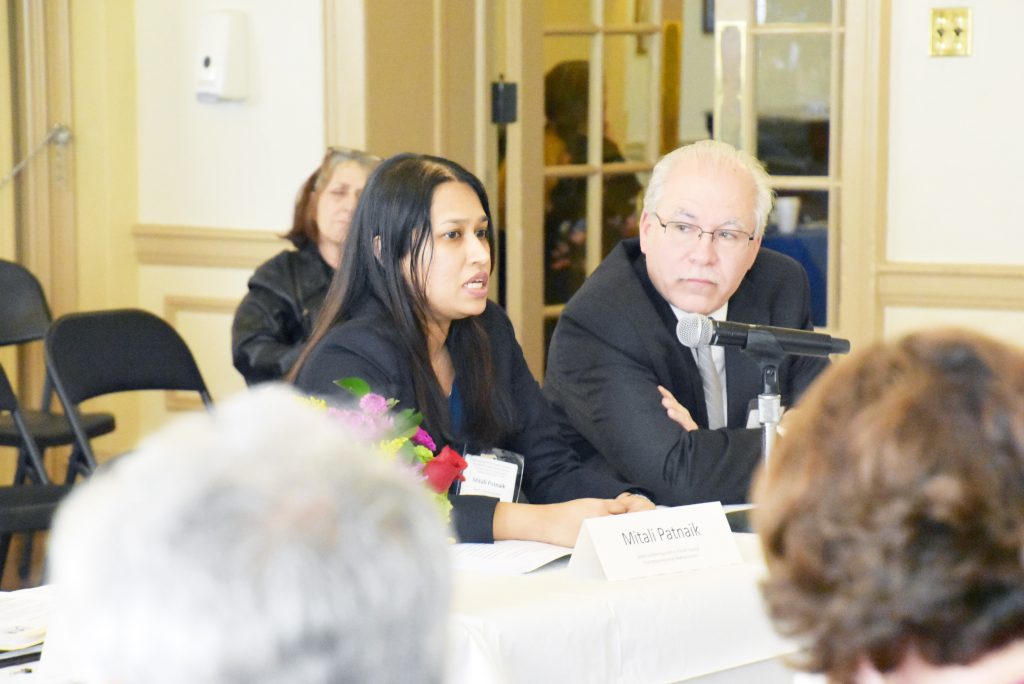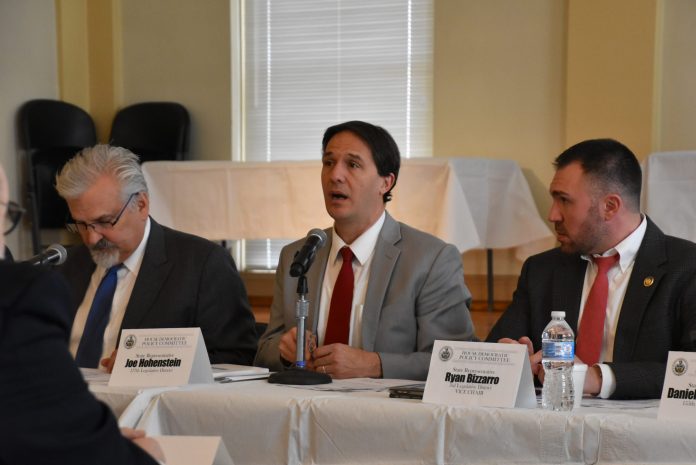When Mitali Patnaik started at the Friends Hospital Crisis Center, most of her patients were suffering solely from serious mental health issues like schizophrenia.
Now, Patnaik, the center’s medical director, says she primarily sees people ages 18 to 25 who are heavy users of heroin. It’s one sign of how the opioid crisis has affected institutions traditionally associated with mental health.
The intersection of behavioral health and drug abuse treatment was the topic of a Pennsylvania House Democratic Policy hearing held last week at Friends Hospital. It was hosted by freshman state Rep. Joe Hohenstein.
More than a dozen Democratic state representatives, including Jared Solomon and Jason Dawkins from the Northeast and Mary Isaacson from Northern Liberties, heard expert testimony from state officials, academics, healthcare professionals and advocates.
Hohenstein said the purpose of the meeting was to hear about best practices on handling the opioid epidemic to form recommendations the party can push during this legislative session.
“We are in a situation where we’re facing people dying in the streets and dying in their homes every day, and my district itself is essentially at the epicenter of that here in Philadelphia,” he said.
Most of the discussion during the March 6 hearing, which lasted more than two and a half hours, was about how to get treatment to people in addiction. Panelists also talked about the extent of the drug problem and the barriers to recovery.
Several spoke about the need to be able to offer physical and mental treatment in the same place to people addicted to drugs.
Lynn Kovich, deputy secretary of the state’s Office of Mental Health and Substance Abuse Services, said at least 25 percent of people with serious mental illnesses also abuse drugs, a rate four times higher than the general population.
She said an important factor in treating those addicted to opioids is being able to offer them services right when they are ready to go into treatment.
“If someone is willing to engage, we need to engage them,” Kovich said. “If not, we’re going to lose them.”

One of the city’s most politically charged topics, supervised injection sites, came up early in the hearing. Two of the speakers, psychologist Steven Datlof and University of Pennsylvania professor Michael Blank, voiced support for the proposed sites.
“In my opinion, these safe injection sites are imperative,” Blank said.
Dawkins raised concerns about the location of a possible injection site. He has argued in the past that his Frankford neighborhood is inundated with drug treatment centers and recovery houses.
“When we start talking about these safe injection sites, where are the proposed sites looking to go into?” Dawkins said. “Into the neighborhoods in which they buy the drugs or the neighborhood from which the person suffering from addiction (comes from)?”
Dawkins said residents have told him they do not want an injection site in their neighborhood because the majority of the opioid users are from other parts of the city or suburbs.
“In reality, the services should probably be in the neighborhoods in which the individuals come from because those are the individuals that need the services,” he added.
Hohenstein, in an interview after the meeting, said his position on injection sites has not changed since he ran for office. He opposes the sites, which were a hot topic during last year’s campaign in the 177th District.
The hearing was punctuated by impromptu testimony from Valerie Felici, a Northeast resident and police officer whose son died Feb. 24 after a years-long struggle with addiction. She co-founded Never Surrender Hope, a nonprofit group that supports people in addiction.
“We’re losing people to this disease because no one wants to step up and do the right thing,” Felici said. “There’s too much politics involved, and it needs to stop.”
Republicans control the state legislature, but Hohenstein said he thinks the parties can collaborate on the opioid issue.
“I believe that there is in Harrisburg the energy and momentum to get positive change that will have a lasting impact,” he said after the meeting.
“We know now that opioid and drug treatment in general is something that we do know how to do,” Hohenstein said. “We do have the capacity. What we have to do is dedicate the resources to it.” ••
Jack Tomczuk can be reached at [email protected]






